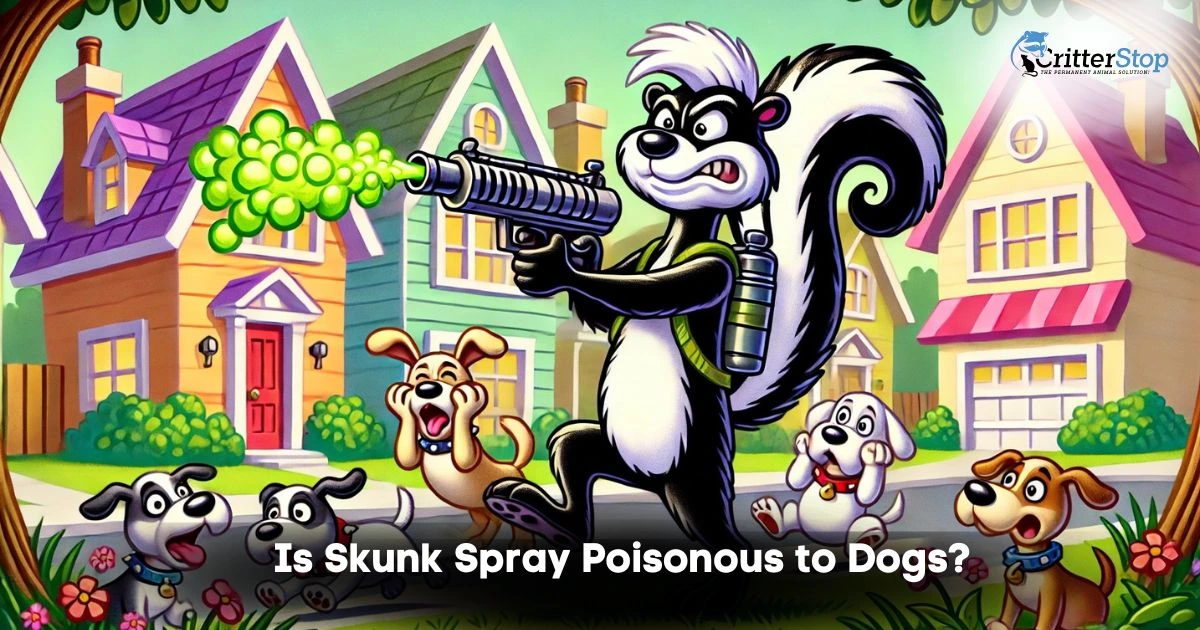
Skunk spray, often feared for its overpowering odor, contains a compound called thiol. Thiols are sulfur-based chemicals that produce the unmistakable stench associated with skunk spray. While the primary effect of skunk spray is discomfort due to its intense smell, its chemical composition can adversely affect dogs when exposed directly.
The spray is stored in two glands located near the base of the skunk's tail. Skunks use this natural defense mechanism to deter predators and threats. However, when a dog encounters a skunk and gets sprayed, the impact goes beyond the pungent odor.
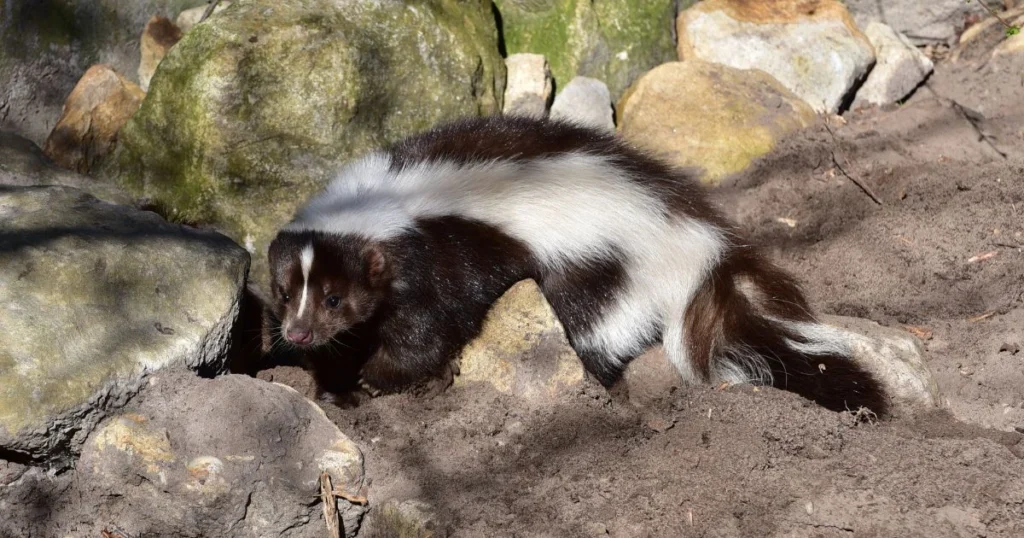
Skunk spray is not typically considered life-threatening, but it can harm dogs in several ways. Here are the key concerns:
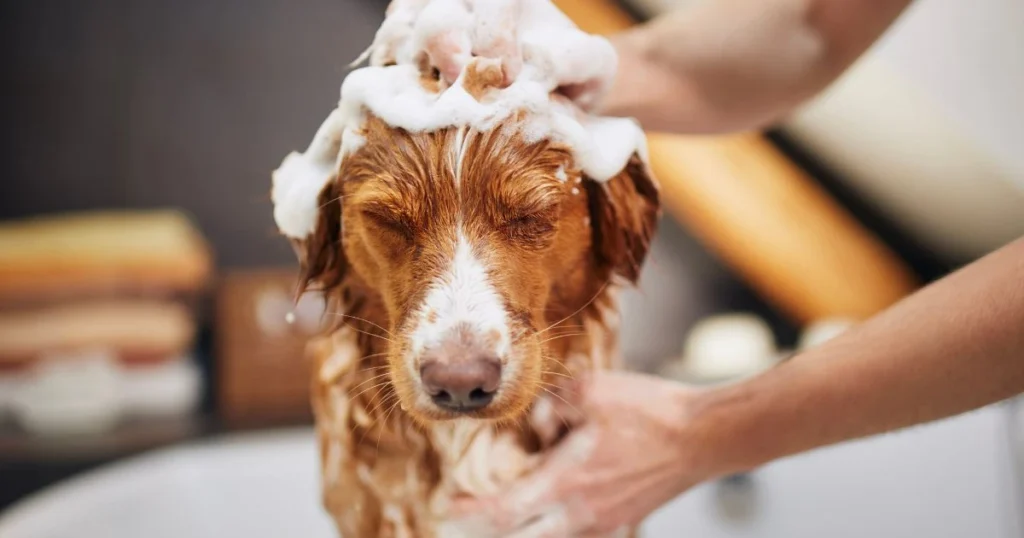
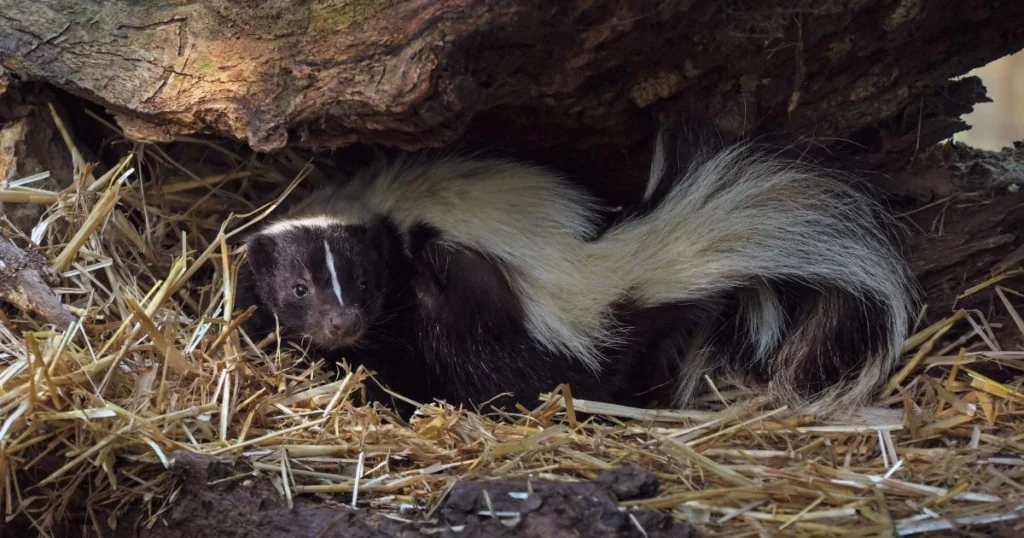
While most cases resolve with prompt treatment, some dogs may experience lingering effects from skunk spray exposure. For instance:
If any symptoms persist beyond 48 hours, consult a veterinarian immediately.
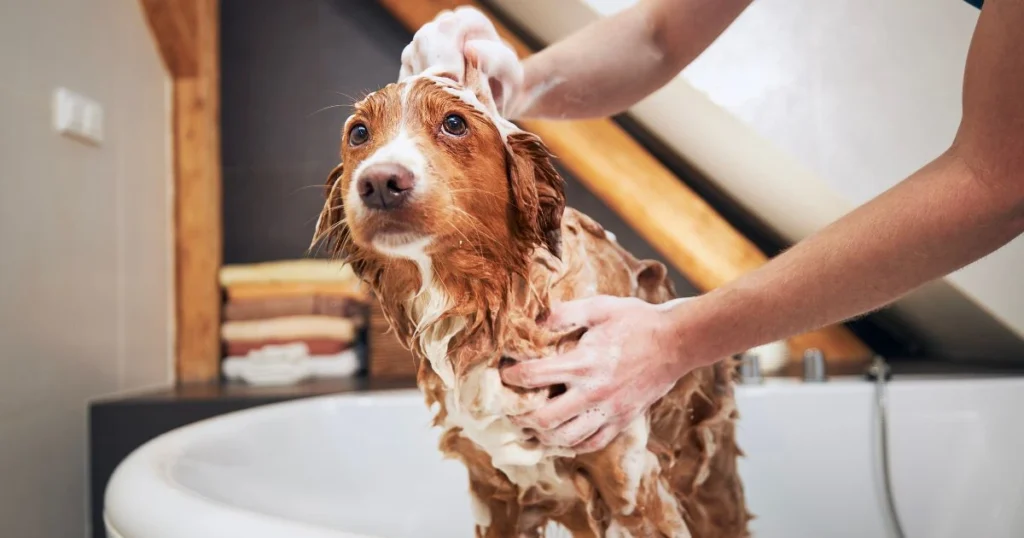
The best way to protect your dog from skunk spray is to prevent encounters in the first place. Here are some tips:
If skunks are frequent visitors to your yard or neighborhood, it may be time to contact a professional wildlife control service. Experts can:
Critter Stop specializes in humane and effective wildlife removal solutions, ensuring the safety of your pets and property. Call (214) 234-2616 for a free inspection and tailored skunk prevention strategies.
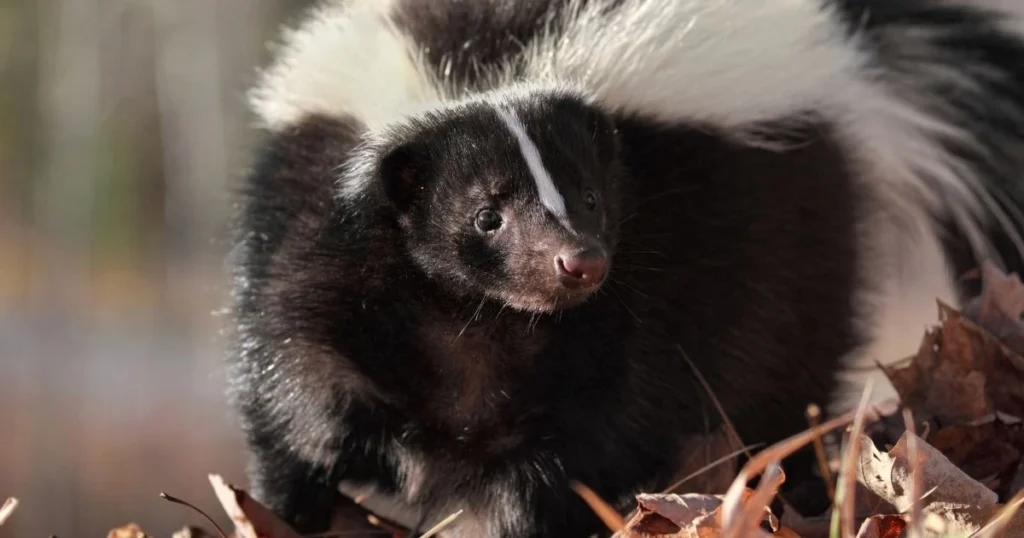
While skunk spray is not inherently poisonous to dogs, it can cause significant discomfort and health issues if not addressed promptly. Understanding how to treat and prevent exposure is key to keeping your furry friend safe. From immediate rinses to effective odor-neutralizing solutions, these steps ensure your dog recovers quickly.
For homeowners dealing with persistent skunk problems, professional wildlife control is essential. With services like Critter Stop, you can protect your pets and property with peace of mind.
Skunks are fascinating creatures, but their unique defense mechanism—spraying—can cause concern for pet owners. From the potential risks of skunk spray to how skunks interact with other animals, these FAQs address common questions to help you better understand and protect your furry friends.
Skunk spray is not typically poisonous to dogs but can cause irritation and discomfort. If it gets into the eyes, it may lead to vomiting, drooling, or temporary blindness. Bathing your dog with a mixture of hydrogen peroxide, baking soda, and dish soap can help remove the smell and soothe irritation.
Besides skunks, certain species of beetles, like the bombardier beetle, use a similar spray defense. Additionally, some reptiles, like certain types of snakes, emit foul-smelling substances when threatened. However, skunks are unique in their ability to direct their spray with remarkable accuracy.
Yes, skunks may spray a cat if they feel threatened or cornered. Cats that approach skunks too closely, especially curiously or aggressively, risk being sprayed. To prevent this, keep your cat indoors or supervise outdoor activities in areas where skunks are common.
Skunks are generally non-aggressive and prefer to avoid confrontation. They will only attack a cat if they feel their safety is at risk. Skunks rely on their spray as a defensive measure rather than engaging in physical attacks. Ensuring your cat keeps its distance from skunks reduces the likelihood of an encounter.
While skunk spray is not typically harmful in the long term, it can lead to temporary issues like eye irritation or respiratory discomfort. Prolonged exposure without cleaning could result in persistent odor or minor skin irritation. Address the spray promptly to avoid prolonged effects.
Secure trash bins, remove pet food from outdoor areas and seal potential denning sites to keep skunks away. Motion-activated lights or sprinklers can deter skunks, ensuring they steer clear of your yard and pets.
Due to their curiosity and independent roaming behavior, cats may be more likely to encounter skunks than dogs. However, any pet that approaches a skunk too closely risks being sprayed. Supervising outdoor time for all pets helps reduce encounters.
If a skunk sprays your cat, keep it outdoors until you address the smell. Use a cat-safe deodorizing mixture, such as a mix of baking soda and water, or a commercial pet skunk odor remover. Avoid vinegar or harsh chemicals, which can irritate your cat's skin.
Visit our Critter Library and learn more about our furry friends